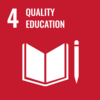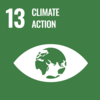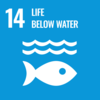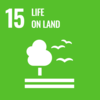Albert Einstein said that “we will not be able to solve the problems we created with our current patterns of thought”. Put more simply perhaps, this tells us that we cannot solve our problems with the same thinking we used when we created them.
In the context of climate change, sustainability, and education, changing the ‘way we think’ about the world around us and the complex global challenges we face means “equipping learners with the skills, attributes and competencies required to safeguard our [highly interconnected] social, environmental and economic wellbeing”, as set out in UNESCO’s definition of Education for Sustainable Development. Research has shown that people who score higher on ‘systems thinking’ are consistently more likely to be better informed and hence value issues like climate change as personally important and take more effective action on them [Yale Ref].
But what is systems thinking? More specifically, how do we, and more specifically our students, know how and when to apply it to such complex, global challenges, if they are unsure of what it really is?
The Strathclyde Climate Education Kick-Off (StrathCEKO) is the first initiative of its kind in UK HE, which engages students in exercising their ‘systems and critical thinking’ competencies to understand the climate problem (i.e. the cause and effects and interdependencies associated with climate change) and explore the range of climate solutions (i.e. the mitigation policies and implementation challenges) required to “keep 1.5 alive” and secure a sustainable future for all. In doing so, learners gain an appreciation of the power of ‘systems thinking’ when applied to understanding climate change, its causes and impacts, and the suite of solutions required to avert the climate crisis in a way that is just and equitable.
Strathclyde Climate Education Kick-Off (StrathCEKO) engages students in exercising their ‘systems and critical thinking’ competencies to understand the climate problem. Learners gain an appreciation of the power of ‘systems thinking’ when applied to understanding climate change, its causes and impacts, and the suite of solutions required to avert the climate crisis in a way that is just and equitable. Interactive workshops using game-based learning and role play provided the opportunity to engage students in the specific problem whilst developing their systems and critical thinking; core competencies they will need when tackling any complex or wicked problem.
650 students have already participated in the workshops, and the project is now being delivered to international partners and being embedded in the curriculum for a number of programmes. The panel would like to see the approach used in all taught programmes.
"COY16 invited young people from across the world to come to Strathclyde and discuss how they can shape their own future and be heard. StrathCEKO was a centrepiece of COY16 and remains a fitting legacy of this event as it continues to enrich the student experience here at Strathclyde.
Professor Sir Jim McDonald, Principal and Vice-chancellor



